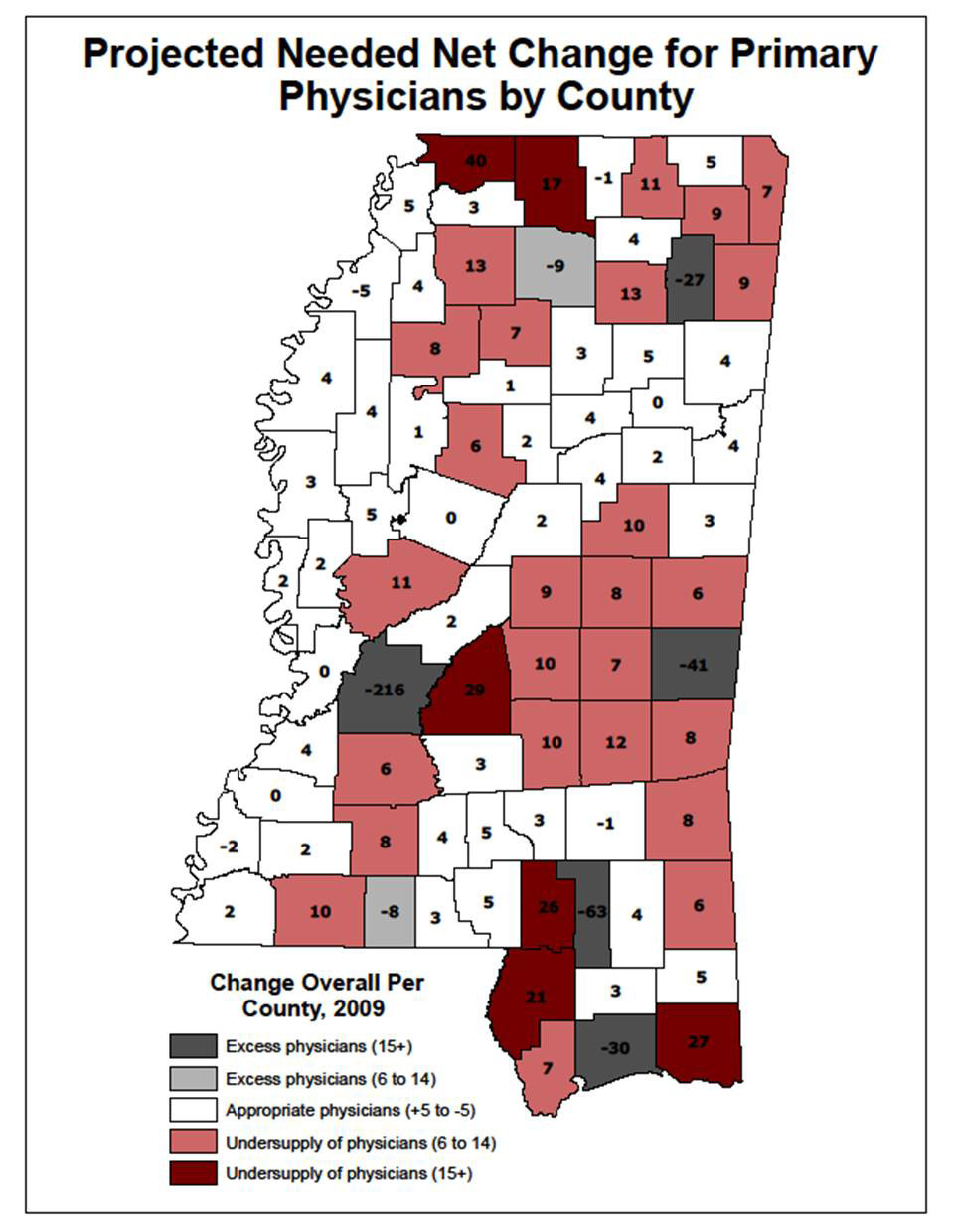Contact: Robbie Ward

STARKVILLE, Miss.--Mississippi's need for more practicing physicians could increase by more than 400 if mandates in President Barack Obama's health care proposals are approved, a Mississippi State study finds.
In a report released Tuesday [Sept. 15] by the university-based Mississippi Center for Health Workforce, researchers said congressional adoption of what is known as the Massachusetts Health Care Model would increase the state's demand for care. In turn, this likely would lead to an increased need for between 56 to 464 physicians in the mostly rural state, their research indicates.
The investigation by Nicholas D.A. DiColandrea, C. Caleb Butts and Jeralynn S. Cossman is based on existing Mississippi health care data applied to rates of increase among uninsured Massachusetts residents at the time of the Bay State's 2006 statewide insurance mandate.
DiColandrea and Butts were summer research associates at the Northeast Mississippi Area Health Education Center at Mississippi State's Social Science Research Center. Cossman is an SSRC research fellow, as well as an associate professor of sociology at the university.
Changing Mississippi's health care provision model to a system based on one similar to the Massachusetts plan would dramatically improve access to rural care, DiColandrea said. It likely would take years, however, for the state to acquire adequate numbers of primary care physicians necessary to handle the likely increase in patients, he added.
Mississippi currently has a shortage of primary care physicians in 56 of the state's 82 counties. One South Delta county, Issaquena, has no primary care physicians. (See map)
The research report shows 49 counties would need to increase their physician supply by 25 percent or more to meet the likely increase in demand.
"Part of the problem is where physicians practice isn't reflected in population distribution in the state," said Butts, also a medical student at the University of South Alabama.
Cossman said shortages in existing care access in Mississippi will "exacerbate" existing physician shortages. In 2007, her research showing the Mississippi Delta to be one of four national regions with the highest mortality-rate clusters illustrated the substantial need for primary care in that area.
"If we increase the demand with the health insurance mandate, we will not have enough doctors," Cossman said. "We don't have the doctors we need in the current system."
While training more doctors to practice in the state would be a key solution, Cossman observed that a decade usually is required to adequately train a new physician--a significant time period when considering major changes to existing health care systems.
Cossman said the use of nurse practitioners to complement health care access could help address the shortage.
Complete information on the new report, including micro-region analyses, may be viewed at www.nemsahec.msstate.edu.
For more comments on the new report, contact Dr. Cossman at 662-325-7880 or lynne.cossman@ssrc.msstate.edu.
For more information about Mississippi State University, see http://www.msstate.edu/.